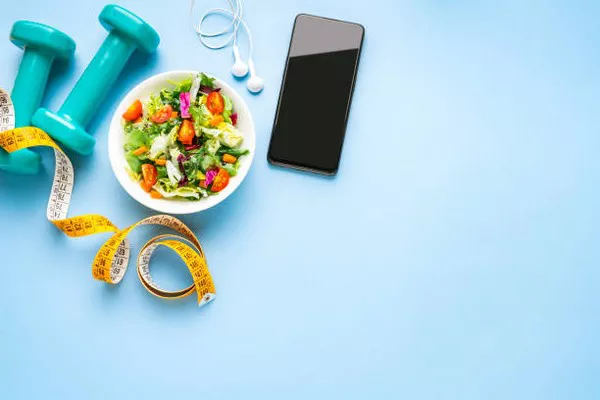Visceral fat, the type of fat that accumulates around vital organs in the abdominal region, is more than just a cosmetic concern. It is a major risk factor for chronic health conditions like heart disease, type 2 diabetes, fatty liver disease, and certain cancers. Fortunately, diet plays a crucial role in managing visceral fat. Experts recommend incorporating specific nutrient-dense foods into your weekly grocery list to support fat loss and overall health. Here are seven highly effective foods that can help target visceral fat and promote a healthier body.
1. Lean Pork: A Protein Powerhouse
Protein-rich foods are known for their role in supporting weight loss, and lean pork is no exception. A four-ounce portion of lean pork tenderloin provides 24 grams of protein while being low in fat, with only 2 grams of fat per serving, of which less than 1 gram is saturated. Nutrition expert Dustin Moore, Ph.D., RDN, emphasizes the satiating effect of high-quality animal proteins, which help curb hunger and reduce overall calorie intake. Adding pork to your diet offers essential nutrients like zinc, choline, iron, and vitamin B12, making it a solid choice for those looking to reduce visceral fat. For a quick and delicious dinner, try a one-pan pork tenderloin dish or air-fry it for a meal in just 25 minutes.
2. Frozen Shrimp: A Lean Protein Staple
Frozen shrimp is another lean protein option that can aid in reducing visceral fat. Three ounces of shrimp contains 22 grams of protein for only 110 calories and 2 grams of fat, with no saturated fat. Additionally, the convenience of frozen shrimp means it stays fresh longer, saving money and reducing waste. For a quick and nutritious meal, toss shrimp into a stir-fry with broccoli or enjoy it in one of many shrimp-based weight-loss recipes.
3. Canned Beans: Fiber and Protein in One
Canned beans are a cost-effective and nutritious addition to any diet. Packed with both fiber and protein, beans help keep you full longer, making them an excellent choice for fat loss. Abbie Gellman, M.S., RD, CDN, notes that beans, such as garbanzo beans, provide 12 grams of protein and 11 grams of fiber per cup. Studies suggest that women who consume beans regularly tend to have smaller waists and reduced body fat. Incorporating beans into meals like soups, salads, or casseroles can support weight loss and improve overall health.
4. Tofu: A Plant-Based Protein Option
For those seeking plant-based protein sources, tofu is a versatile and nutrient-rich option. Studies have shown that adopting a plant-based diet can lead to greater reductions in visceral fat compared to a standard diet. Tofu is a fantastic source of soy protein and fiber, which help promote satiety. Its versatility allows it to be added to smoothies, soups, salads, and grain bowls, boosting the nutritional content of meals. Freezing tofu before use enhances its texture and may improve its fat-burning potential.
5. Nuts: Healthy Fats for Weight Loss
Despite being calorie-dense, nuts can aid in weight loss and fat reduction due to their healthy fats, protein, and fiber content. Gellman explains that the combination of unsaturated fats and fiber in nuts promotes satiety, helping individuals feel fuller for longer. Research shows that individuals who snack on nuts, rather than processed snacks like pretzels, are more likely to lose belly fat. Nuts also lower the risk of metabolic syndrome, a group of conditions that increase the likelihood of heart disease.
6. Oats: Soluble Fiber for Belly Fat Reduction
Oats are rich in beta-glucan, a type of soluble fiber that has been linked to lower levels of visceral fat and overall body weight. Gellman highlights that oats provide a satisfying combination of carbohydrates and heart-healthy plant protein, making them an ideal choice for those looking to manage their weight. Whether used in overnight oats, savory porridge, or as a base for granola and baked goods, oats are incredibly versatile and nutritious.
7. Berries: Antioxidant-Rich Fruit for Fat Loss
Incorporating more fruit into your diet can help reduce visceral fat, with berries being an especially beneficial option. Moore points out that berries are high in fiber, which promotes feelings of fullness and supports fat loss. Whether fresh or frozen, berries are an excellent addition to smoothies, oatmeal, or even savory dishes like grilled salmon with blueberry sauce. With six grams of fiber per cup of mixed frozen berries, they provide a flavorful and nutritious way to support weight management.
Final Thoughts
Visceral fat poses a serious threat to long-term health, but incorporating certain foods into your weekly routine can help mitigate this risk. Lean pork, frozen shrimp, canned beans, tofu, nuts, oats, and berries are all excellent choices for reducing belly fat while providing essential nutrients to support overall well-being. Stock your pantry with these foods, and you’ll be well on your way to a healthier body and a flatter waistline.
Related Topics:
Is Sourdough Bread Ok On Mediterranean Diet


